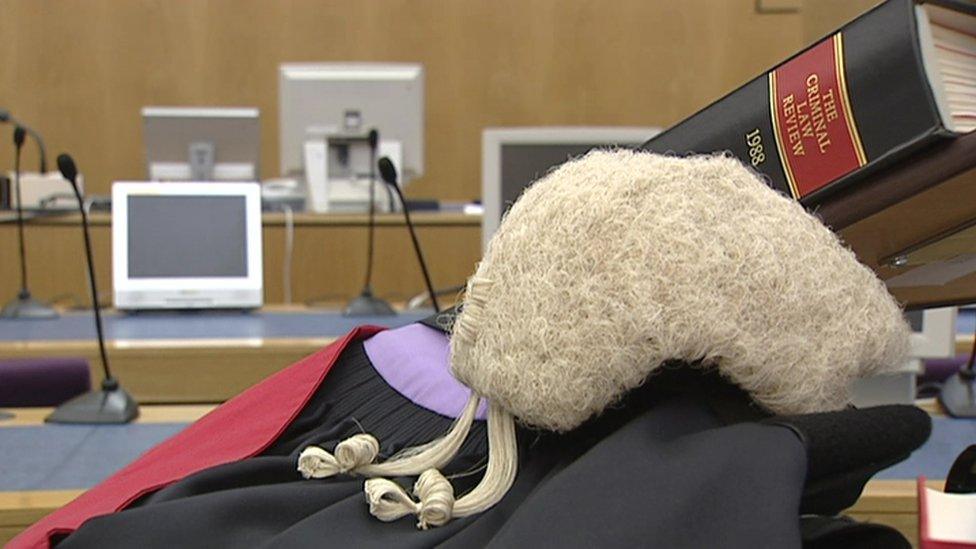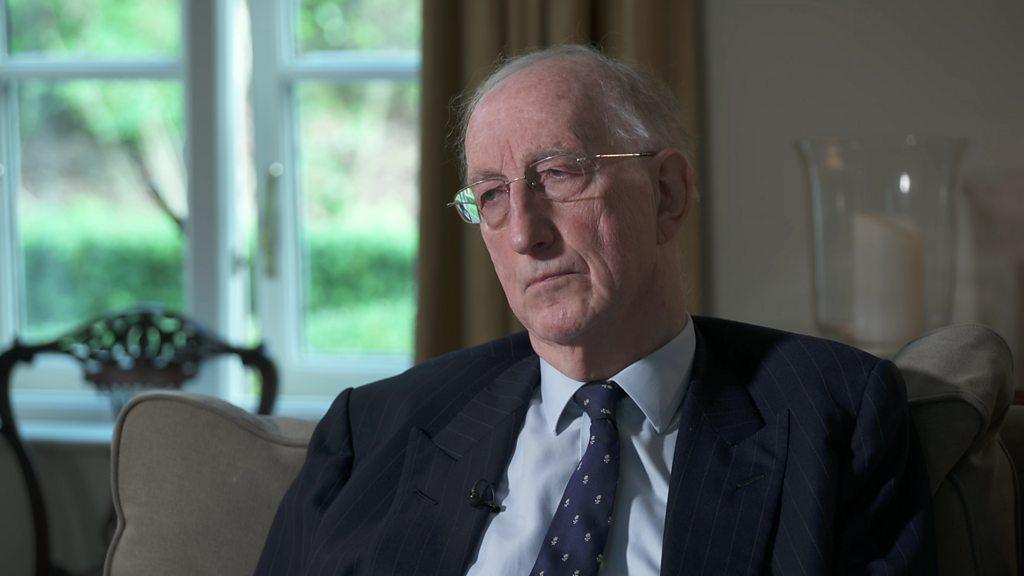Stalking victim 'scared to sleep in own bedroom'

A new remote evidence centre allows complainants to give evidence remotely (stock image)
- Published
A woman who was seriously harassed and stalked by her former partner has said she only saw the case through because she was able to give evidence away from court.
A new remote evidence centre in Belfast opened a year ago.
It was one of the recommendations of the Gillen Review which examined how the criminal justice system in Northern Ireland deals with serious sexual offence cases.
The new centre allows vulnerable adult and child witnesses to give evidence in cases remotely, via video link.
Witnesses go to a confidential location and eliminate the risk of bumping into their alleged abuser in the courthouse, sharing court facilities with them, or having to see a defendant's friends and family.
Since opening, 33 cases have been completed with complainants based at the centre.
Of those cases, 94% resulted in a conviction.
There are three of the centres across Northern Ireland.
'Feared for my life'

The victim said she had doubts about giving evidence on the morning of the trial
Lisa, not her real name, says she would not have agreed to give evidence against her stalker and former partner if it had not been for the remote evidence centre (REC).
“I knew I had to get out of the relationship, it was always mental abuse, but I feared for my life,” she said.
“After we split it was messages, emails, WhatsApps, calls to my house in the middle of the night, I got followed. I was so paranoid. It was every single day, lies and a vicious cycle of violent messages.
“It was controlling my life.
"I was scared to sleep in my own bedroom. I ended up on sleeping tablets, but I got to the point that I was scared to even take them because what if I was out cold in a deep sleep, something could happen to me.
“Eventually I had some very threatening messages and I called the police - their quick response scared me, they told me how serious it was, they told me it was harassment.”
'Why am I being punished?'
Eventually prosecutors decided to pursue the case and asked Lisa to give evidence against her former partner.
“When I was asked to give evidence it was the scariest feeling, I just kept thinking, why do I have to, they have all the evidence, why am I being punished?” she said.
“I was brought round the court room ahead of time to see it. They let me go on the stand and hold a Bible and I just started to shake, I totally fell apart.
“There was no separation between anyone. Me and my family would have just been sat there beside him and his ones.
"You have to use the same entrance, the same toilets, you could be using the same car park, I could be standing talking to the barrister right beside him.
“When I was brought to the REC it was just totally different. I could listen in to the case from there, my family could come, it felt safe. It just wasn’t anywhere near as intimidating.
“The morning of the trial I still had doubts that I could do it, but the team at the REC gave me hope that I could.”

Sir John Gillen said some perpetrators believe complainants will fold if they have to testify in court
Sir John Gillen is the man behind the idea and the hundreds of other recommendations made in the Gillen Review.
Of those recommendations 62% are fully completed.
In 21 cases where witnesses were scheduled to give evidence from the REC in Belfast, the defendant pleaded guilty without the complainant having to give evidence.
Sir John said that was significant.
“There’s no doubt there are a number of perpetrators who believe that the complainant will fold and won’t go through with it and as soon as they find out that’s not going to happen, they do the deal," he said.
"That’s an important contributory factor. The proof is in the pudding, a number of people have pleaded guilty once these RECs are available."
He said the centres were important factors in persuading people to stay within the system and give their evidence.
“We only have these centres in Belfast, Craigavon, and a similar facility in Derry, what about Enniskillen, Newry, Omagh? We need more of them, but of course funding and resources is a problem,” Sir John said.
“But the cost of sexual offences is astronomical. There is no greater crisis in our community than violence against women and girls, and it’s partly a cultural thing that we’ve not yet got to grips with.”

There is also a children's room at the facility
Lisa is grateful for the Belfast REC, but she is still dealing with the trauma of what happened to her:
“I honestly don’t think I could have gone if it had been giving evidence in the court," she said.
“It’s not over for me, there will always be flashbacks and triggers, but why should I live like that, no-one has a right to make me live that way.
"It took the system to explain to me that no-one has that right.”
What is stalking?
The PSNI said red flags for a stalker include:
Regularly following someone and tracking their movements
Repeatedly going uninvited to their home or workplace
Checking someone's internet use, email or other communications
Hanging around somewhere they know the person often visits
Interfering with their property
Watching or spying on someone
Identity theft (buying things in someone's name)
The National Stalking Helpline provides practical advice and information to anyone who is currently or previously has been affected by harassment or stalking 0808 8020300.
If you have been affected by any of the issues in this story, help and support is available at BBC Action Line.
Related topics
- Published21 June 2024

- Published22 March 2021

- Published19 March 2022
